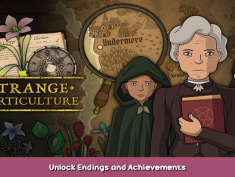
Then learned that in his youth he had studied geology,Īnd had known Dr. Hume at once appreciated the inference, and W Worn fragments of rock which I knew were foreign toĮssex, I pointed them out to Mr. Geology, and perceiving on a roadside bank of clay some I had for many years devoted attention to Railway station, and we proceeded along a road in thatĭirection. Was that it grew somewhere to the north-west of the Primula elatior, a plant which in England grows only To Saffron Walden, in Essex, to collect specimens of Orchids.' In the same month I also accompanied him Tioned in his famous work on *The Fertilization of Haunts and where he obtained many of the plants men. Hume to certain spots at DownĪnd in the Vale of Cudham, which had been Dr.

' Darwin resided during the last forty years of his life and |about the village of Down, in Kent, where the late Dr. "I had been accustomed to botanize in the country Was somewhat restored, when he engaged me as his Hume until, in the spring of 1901, my strength At the end of October 1900, my health brokeĭown, and I was the recipient of much kindness and helpįrom Mr. Honorary secretary of a natural history society which, inĬo-operation with a few friends, I had assisted in forming Saturday afternoon, and frequently the whole of Sunday,Īnd each of the bank holidays, exclusively to collecting "I was then engaged in business in the City of London,īut from April to October in that year I devoted every Times led to the extirpation of rare species, and I quite Plants gathered in Britain, because such a practice some.

Hume specimens of all the more valuable species I could find, and from time to time send to him in Cornwall, where he was proposing to spend the season collecting plants, lists of what I might collect, he engaging to defray my travelling and other incidental expenses He explained that upon principle he never purchased Hume calling upon me at my residence in a south-east London suburb, and an arrangement was made that I should collect and press for Mr. Hume, to whom I was then unknown, stating that he desired to add to his herbarium specimens of the orchideous and other plants mentioned in my articles, and requesting me to name a time and place where he could see me.

Early in 1900 I received, through the editor of the paper, a letter from Mr. "In and previously to the year 1900 I had contributed to a Kentish newspaper a weekly article on natural history subjects, many of which were descriptive of the flora of West Kent and East Surrey. Hume first engaged me as his botanical assistant, because an illustration of the benevolence of his character is thus afforded. "I have thought it well in the first place to state the circumstances under which Mr. Griffin writes as follows regarding the Botanic Institute : Also at his home I was sometimes privileged to see him at work, in his "peaceful hermitage" to watch his beautiful manipulation of the dried specimens and to note the zeal he inspired in his co-workers. To stroll in converse with him over cliff and moor was in itself a liberal education. In order to verify the existing catalogues of local plants, he used to spend his summer holidays in some important district, such as Devon, Cornwall, Upper Teesdale in Yorkshire, and the Peak in Derbyshire and on one occasion I visited him at Looe, where he was engaged in personally investigating the Cornish flora, detecting the appearance or disappearance of local rarities, "escapes," and "undesirable aliens." Owing to its almost insular position, with its mild and moist climate, Cornwall offers peculiar features of interest to the botanist, and the flotsam and jetsam of the numberless vessels coming up the Channel from distant lands,Ĭonstantly bring strange seeds to germinate in the creeks and harbours of the rocky coast. Griffin, Curator of the South London Botanic Institute, which he founded and endowed, has been so good as to prepare an expert statement of his labours in this connection, labours which would have alone filled up the life of an ordinary man. This memoir, as a narrative, must conclude with his work in a branch of natural science which, until his later years, he had not systematically explored-botany, the study of "every herb that sips the dew." Mr.


 0 kommentar(er)
0 kommentar(er)
